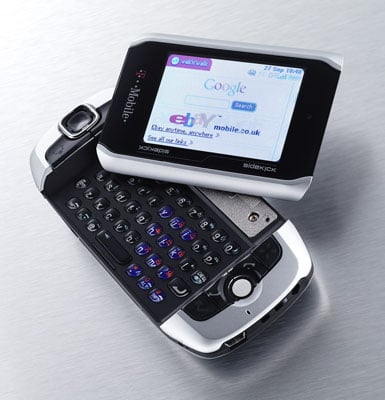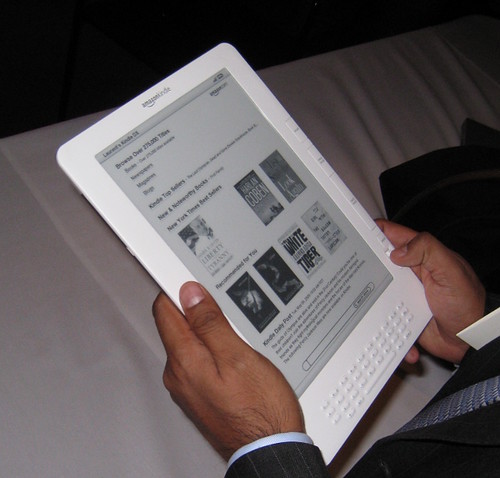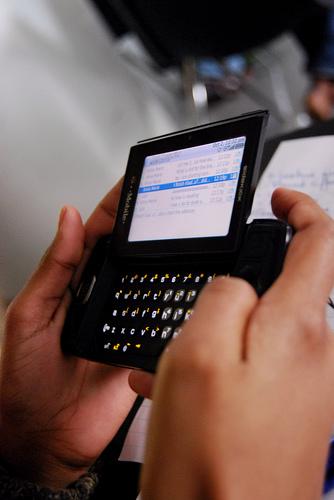 By Ben Patterson / Yahoo! Tech
By Ben Patterson / Yahoo! Tech"Twice a year, the organization representing the wireless industry puts out a bunch of facts and figures on how much we're using our phones in the U.S., and each time, I can't help but marvel at the results.
The big number this time around, according to the CTIA: In the past six months alone, Americans sent an estimated 740 billion text messages, which comes out to about 4.1 billion messages each day.
Put another way: That's 11.7 text messages a day for every man, woman, and child in the country. (Of course, the average American teen can fire off 11 text messages in the time it takes you to read this paragraph.)
Or, how about this: An SMS has a maximum capacity of 160 characters, so let's say (for the sake of example) that your average text message is about 80 characters long. And let's assume that your average novel contains about 100,000 words, and each word has about five letters.
So ... assuming all that (and keeping in mind that my math is a little shaky), we here in the States are writing the equivalent of about 656,000 books—all via SMS—every 24 hours. At that rate, we could match the entire catalog of the entire New York Public Library system (which holds about 20.4 million books) in a little over a month. Amazing ... although whether you'd really want to read all those SMS books is another question.
In any case, if the CTIA's tally of 740 billion text messages in the past six months stays on track through the rest of the year, we'll pass 2008's total of one trillion text messages easily, ending up at nearly a trillion and a half messages for 2009 (and remember, that's just in the U.S.).
A few other facts and figures from the CTIA survey:
* The average cell phone bill in June 2009 was $49.57, up more than a buck from June 2008;
* The average length of a voice call was just 2.03 minutes, shorter than any other year since the CTIA started keeping records in 1988;
* There are about 276,610,580 wireless subscribers in the U.S., up about 14 million from last year, and more than double the number in 2002;
* The various wireless carriers (or at least the ones who reported figures to the CTIA) raked in $151.2 billion in revenue from June 2009 to June 2008—again, more than double what they made in 2002."


















